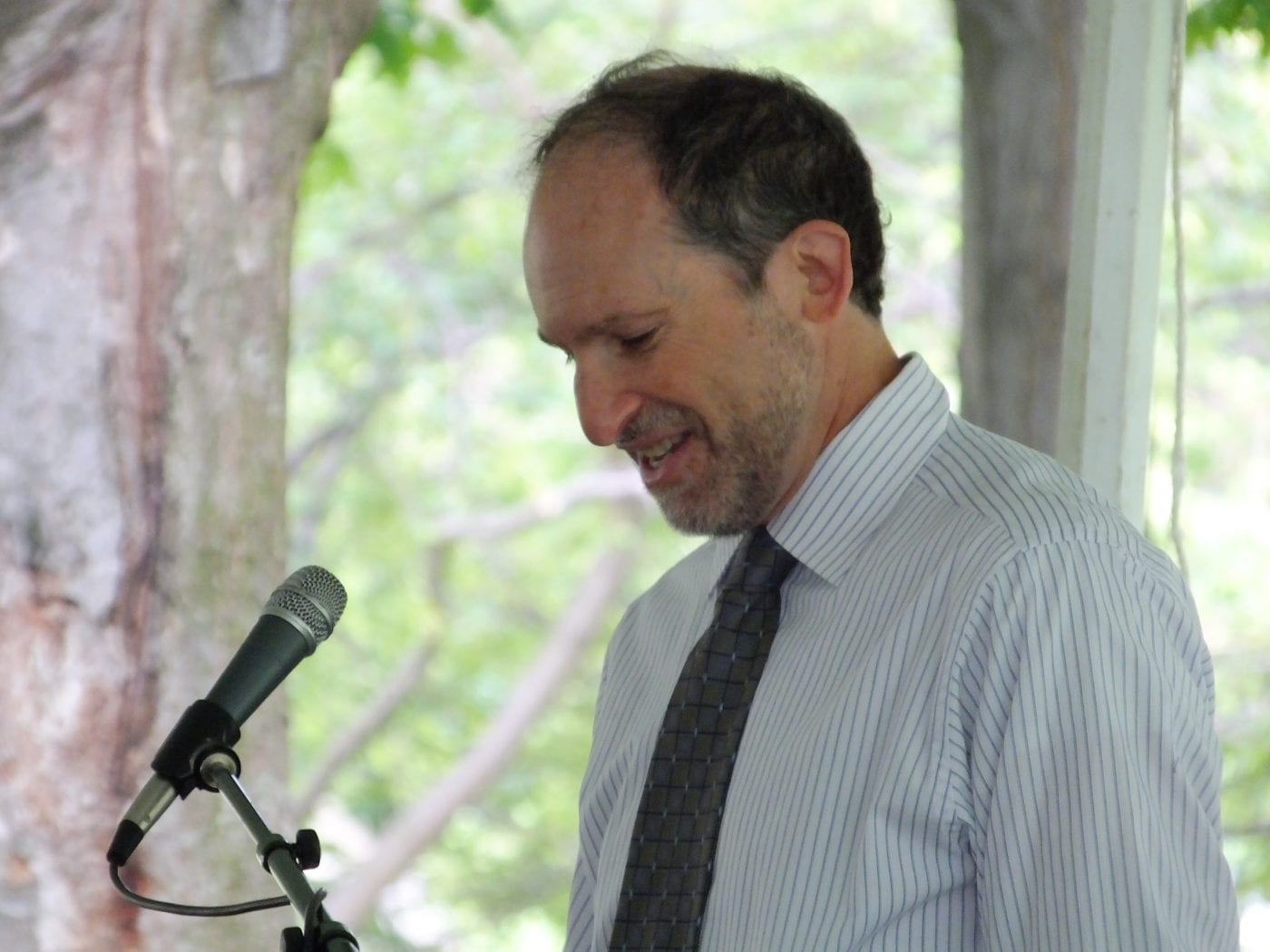News
BTI Helps Launch SIPS, New School of Integrative Plant Science
Thank you, Dean Boor and President Skorton, for inviting me to speak on the national plant science research agenda. We stand in the midst of a revolution in plant biology. As recently as ten years ago, the genomes of only two plant species had been decoded, at a cost of tens of millions of dollars, but today more than fifty plant genomes are known, with hundreds of variants described at a small fraction of the cost.
Now, single cells are routinely isolated for detailed analysis using lasers. Robotics have transformed our ability to conduct high-throughput and high quality analyses both in the laboratory and field. A torrent of data from every corner of plant science is being given new meaning through the creativity of computational biologists. But technology is a means, not an end, to finding solutions for the grand challenges facing our world. What we need now is the blurring of disciplinary boundaries in both research and training, and mechanisms that successfully promote these cross- disciplinary approaches.
In December 2012, President Obama’s Council of Advisors on Science and Technology called for the “creation of a new innovation ecosystem for agriculture,” one that brings together scientists from traditional agricultural fields with those from the biological and physical sciences. This is one of several recent calls to action that have come forth at the national level, all of which remind us that the complexity of today’s problems calls for new structures and new thinking.
Plant scientists from across the country have taken the visionary step of developing a set of research priorities for the next decade, 3 culminating in the 2013 release of the Plant Science Decadal Vision, whose central goal is to increase dramatically the ability of plant scientists to understand, predict, and alter plant behavior. If we implemented this Decadal Vision, the impact on agriculture, the bioeconomy, medicine and food security can scarcely be overstated. The fundamental discoveries required to achieve this goal will usher in another revolution in plant science.
For example, plants are chemical wizards that have created as many as 500,000 unique compounds. Some 7,000 plant species have been exploited as medicines or traditional remedies, going back to prehistoric times. And yet hundreds of thousands of chemicals remain to be identified. Why do plants make these compounds? Which ones have therapeutic, agricultural or industrial applications? Some 400,000 plant species thrive in even the most inhospitable environments on Earth, and some of these species are closely related to some of our most important crop plants. We have much to learn from nature’s solutions to address health, nutrition and sustainability. Indeed, researchers on this campus have been among the pioneers in the burgeoning study of how natural variation can inform plant improvement.
The opportunities for plant science can only be realized by a concerted, collaborative and visionary enterprise on the international, national and — most importantly for our celebration today — campus level. The Cornell campus is fortunate to be home to three very different, but highly influential plant science research organizations: The Boyce Thompson Institute, which is focused on basic research, CALS, spurred by its land grant mission of research, teaching, and extension; and the USDA Holley Center, propelled by a mission of applied agricultural research.
The history of strong connections and collaborations among these institutions is one reason why our campus is poised to exert its leadership as a new revolution in plant science emerges. We can point to the New Life Sciences Initiative, launched in 2002, as an era where our joint vision attracted a large number of scientists who today lead some of the most exciting research around country and indeed, across the globe. The next generation of plant scientists—some of whom are with us here today—stands at an exciting juncture, as a technological and intellectual revolution converges with society’s call to plant biologists to provide solutions to humanity’s most vexing problems.
I applaud Cornell’s leadership for their vision in forming the School of Integrative Plant Science, and congratulate Dr. Alan Collmer on his appointment as Director. With pride and enthusiasm, the Boyce Thompson Institute looks forward to joining forces with our Cornell partners as we set the stage for future plant scientists to meet the challenges of our world head on.


